Good morning friends. Today is a day full of the complexity of what it means to be human. All the joy for some. All the pain for others. And for many somewhere in between.
Joy can look like: you are proud of the relationships in your life that are nurturing and supportive. Maybe someone special will call you today or you them. Maybe you sent a card or flowers earlier in the week.
Pain can look like: the ache of someone who is no longer here or not able to be present in your life the way you hope. Maybe you've lost children or the hope of children and your life really has never been the same.
And the word we are talking about today is mom. A word that the dictionary offers us such a limited definition of: a female parent.
Author Anne Lamont in her annual Mother's Day post says this about the day:
"I hate the way the holiday makes all non-mothers, and the daughters of dead mothers, and the mothers of dead or lost children, feel the deepest kind of grief and failure. The non-mothers must sit in their churches, temples, mosques, recovery rooms and pretend to feel good about the day while they are excluded from a holiday that benefits no one but Hallmark. There is no refuge — not at the horse races, movies, malls, museums. Even the turn-off-your-cellphone announcer is going to open by saying, “Happy Mother’s Day!”
And I echo her sentiment. We so easily can sentimentalize the heck of out of day like this and forget the pain of others and how our words (even well-meaning) can be a source of others' pain.
But it doesn't mean joy isn't present too and if we feel joy we shouldn't lean into it.
Today, I'm celebrating all those who shaped me and modeled for me unconditional love. Today, I'm celebrating all the ways God has mothered me along with the way with beautiful nurturing people in my life.
So, what about you?
Wherever you are on your journey with the experience of the word mom, know that you are loved. You are seen. And if today is full of grief, the day will soon pass. Breathe in and out, rest in your belovedness, my dear readers. Don't feel the pressure by those around you to be or feel anything that isn't real today.
Most of all, let me tell you this: your Mother God loves you so.
XO
Elizabeth
Now, I know if you opened this email with the title in the subject line: you are brave.
Today is a big day. It's a day full of the complexity of what it means to be human. All the joy for some. All the pain for others. And for many somewhere in between.
Joy can look like: you are proud of the relationships in your life that are nurturing and supportive. Maybe you have a child in your life who you know will be coming over for a special meal or who is making you breakfast in bed this morning. Maybe you sent flowers to someone this weekend or received them.
Pain can look like: the ache of someone who is no longer here or not able to be present in your life the way you hope. Maybe being around the person who gave birth to you today is not safe. Maybe the children you thought you'd have or wanted to have are at the top of your thoughts but not alive.
And the word we are talking about today is mother. A word that the dictionary offers us such a limited definition of: a female parent.
If you have been in this community of Word of the Week for a while, you know that I have a complicated relationship with the word mother.
My husband and I waited for parenthood to find us for over 8 years before our daughter came into our life over 4 years ago through adoption. I am not my daughter's birth mother, but I am the mother who is raising her. As much as I see in my daughter the experiences of what it means to be raised in our home, I also see her birth parents too. I see the gifts they gave her in bringing her into this world.
I am also a woman who has an estranged relationship with my own biological mother. A sheer fact that many in a similar situation would never speak of or hide. But I have come to a point where it just is. I do not want to be ashamed. It is kindness to my soul as painful as the boundaries are for others. It is along the lines of Mary Oliver's exhortation of being "determined to save the only life you can save." Our estrangement is about my saving my life.
I share this with you as I weave my own story into the complications of what it means to be born, be raised, live and parent others no matter if it comes with biological ties or not.
Today, I'm thinking about my daughter's first mom. Today, I'm thinking about my first mom too. And even as complicated as those two relationships are-- I give thanks for them too.
I also give thanks to all the women who have raised me, shaped me and modeled for me unconditional love. I stand today on their encouragement, wisdom and reminders that I am on the best path for me.
So, what about you? I don't know where your relationship is today with the word mother. But I do know this: wherever you are, wherever your mother is, know that you are loved. And in case of really sucky situations, Mother's Day is just one day. Soon it will be over.
So breathe in and out, rest in your belovedness my dear readers. Don't feel the pressure by those around you to be or feel anything that isn't real today. Your Mother God loves you so.
XO
Elizabeth
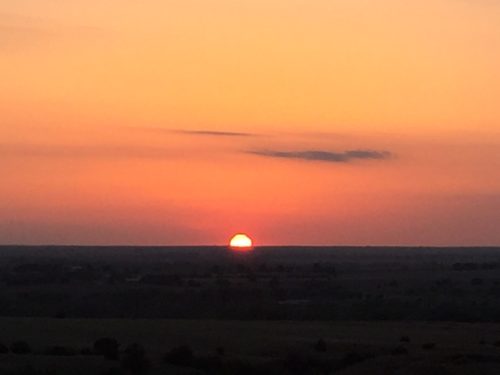 What did you do to celebrate Easter this weekend?
What did you do to celebrate Easter this weekend?
I went to Oklahoma.
When I found out I wasn't preaching this Easter (which of course made me sad but is just a par for the course in a free-range pastor life), I knew I needed to do help our family plan something special. I wanted to be with people we loved. I wanted to act out Easter.
When a friend asked me last week about our plans, I joked that we were making a "resurrection pilgrimage." At first it sounded like dorky preacher talk but the more the words settled in, I knew I spoke right. That this was indeed what we were doing.
Spending Easter in Oklahoma was a resurrection pilgrimage.
If any day defines who we are as Christian people, it's Easter. Easter tells us that hope springs eternal. And new life is always possible. (Which is no small thing, people!).
As a pastor, I'm known to say to congregations I serve that resurrection is a verb. It's a living action that Jesus took. It's action that changes our living lives. It's an action that we take in response to what Jesus has done for us. It's action that keeps going and going. And resurrection is always personal.
We all have resurrection stories to tell. Here's one of mine:
There was a day when I thought I might not pastor anymore. The 2012-2105 years in Oklahoma beat me down. It had taken away my courage. And it made me feel like I didn't have a lot to offer the world when congregations kept saying to me, "You'll never work in the state as a lady pastor." So much in my life felt dead. Maybe the pastor part of my life was done and over?
Then I met the Federated Church in the middle of Western Oklahoma. They asked me to be their interim pastor.
And this church called out my gifts again and kept telling me how happy they were that I used them. And this church loved through my tears. And this church continued to be in my life (and the life of my family) in very significant ways even after I left my official role. I wrote about my experience of being "Breathless with Gratitude" because of them back in April of 2015.
My life was changed because of knowing this church-- a statement I don't make lightly.
So much so that my daughter's middle name comes from one of the families in the congregation. As she was a resurrection gift in our lives, she needed a name, we felt that equally came from a place of resurrection.
So, as I sat in the pew on Sunday morning, listening to their new pastor (who is wonderful, by the way) share his own resurrection story, a story that had everything to do with his experience of the same love I knew in that place, I couldn't help but think this is the best of what church can be.
Together, in community, we come together to experience new life. And we then share it with one another. We really are never the same!
Resurrection looks like pastors finding their vocation again through congregations that see them as they are.
Resurrection looks like people being joined together in family relationships, though no birth certificate demands it.
Resurrection looks like congregations singing, "Christ the Lord Is Risen Today" not in memory of some event that happened 2,000 years ago, but as a statement of fact about the present.
So hopefully next year, I'll be preaching on Easter-- for I have so much to say-- but if I'm not, I'll be sure to plan another resurrection pilgrimage.
Because what better way to celebrate Easter than with God's gift of Spirit-given family? I couldn't be more thankful for mine in Oklahoma.
And I know that more resurrection gifts in my life (and yours too) are still yet to be!
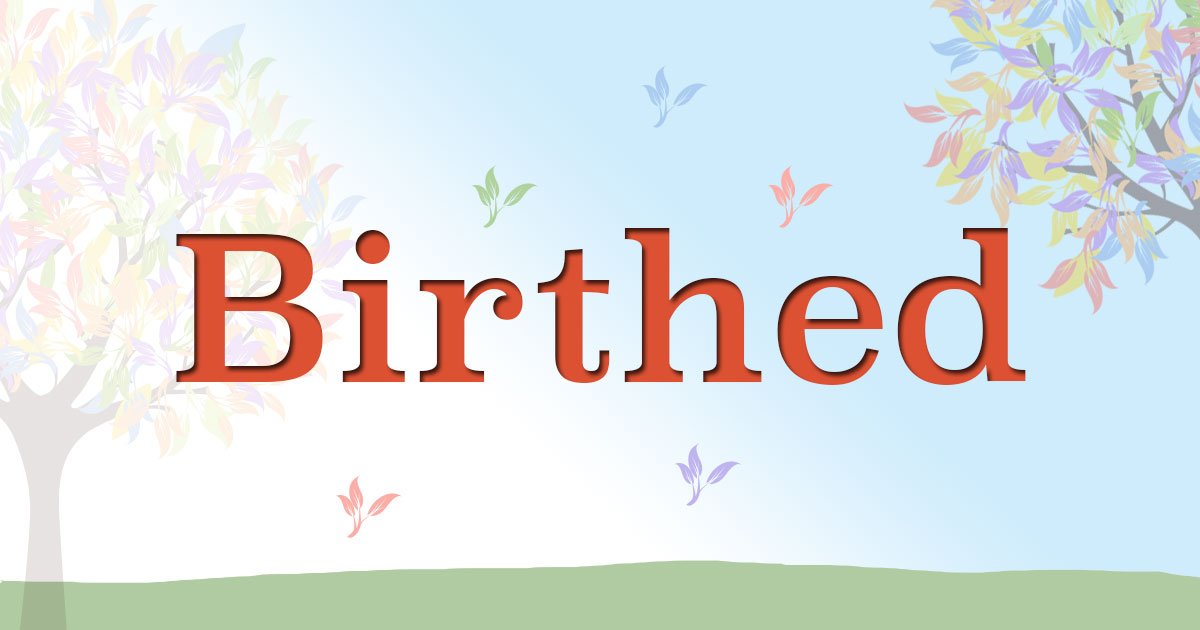
Do you believe you're living a life well lived now?
For most of us it's so easy to ignore, try to skip over or plow through the hard chapters of our lives and not learn the lessons they have for us. But today, Dolly-- a friend I met through my pastorate last summer at North Chevy Chase Christian in Maryland has a testimony to share as she looks back over the key stories of her life. And ultimately her word is that God's goodness has prevailed. You'll want to read her words-
My life has been good. God has been good to me. It’s hard, now, for me to see any of it as being difficult. Although, at times, it surely was.
My father died my senior year in college.
My mother called saying, “Dad has had a stroke, come home quickly.” He was unconscious when I got there and never regained consciousness. He died the next day. We didn’t get to say goodbye. That was hard. But life goes on. I went back to college, finished my final exams. I graduated. God was with me.
My first child was stillborn.
I was very sick with toxemia during the pregnancy and lost 20 pounds. I was so weak they didn’t bring the baby to me in the hospital. Maybe they thought it would be too much for me to deal with, holding my dead baby. So I never got to see him. I only have my memories of my relationship with him while he was in the womb. I talked to him all the time while he was inside me. I knew him. But I never got to see him or hold him. That was hard. But life goes on. I was young, my husband was supportive. I survived. God was with me.
Twenty-some-odd years went by, my marriage failed, I struggled with getting a divorce.
I prayed about it, knowing what the Bible says about divorce. Always I have tried to be obedient to God. I made my decision and trusted that God would forgive me. I survived. Life went on. And it was good. God was with me.
When Bread for the World relocated from New York City to Washington, DC in 1982 I applied for a job opening as assistant to the director. Lo and behold, I got it. We moved from Bloomington, Indiana, to Washington, DC. And I spent the next 27 ½ years using my talent for organization for a worthwhile organization that accomplished great things for hungry people. Being a Christian organization, the staff nurtured each other with weekly prayers on Friday and with ongoing loving support of one another. Now retired, Bread is still close to my heart and I keep the staff and the mission of the organization in my prayers. And it was good. God was with me.
But then my mother died, at a ripe old age, I felt like an orphan.
Both father and mother dead. No brothers or sisters. But life went on. I spent time talking to her as I drove to work each morning. And then one morning, I got to work and realized I hadn’t thought of her once. And that is the way life is. It goes on, and so do we. God was with me.
Despite the times of loss and change, God has always been good to me. The difficult times strengthened my relationship with Him. He has always been with me, guiding me, comforting me, forgiving me, loving me. The Bible text that I try to live my life by has long been these words from Micah 6:8: “And what does the Lord require of you but to do justice, to love kindness, and to walk humbly with your God?”
I am blessed.
Dolly was born in Indiana and now lives in Maryland with her husband. She has an B.S. in Music, Indiana University. She loves her family, friends & neighbors. Now as a retired woman she especially appreciates her animals, nature, music, books, and lots of peace and quiet. 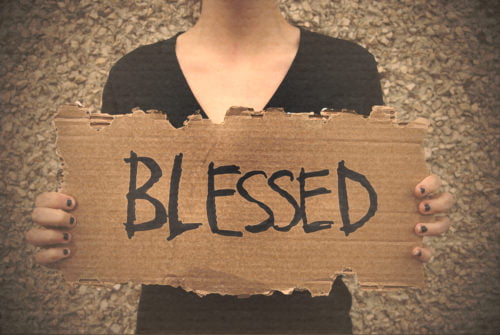
A sermon preached from Ruth 1:1-18 at Springfield Christian Church, Springfield, VA
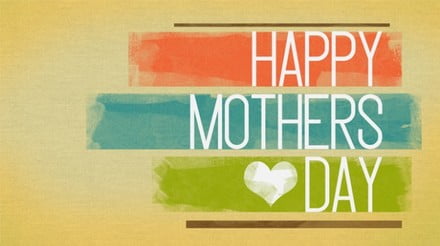 Mother’s Day . . . it’s a day on our calendar much like Christmas or Easter brimming over with sentimentality and expectation, isn’t it? We have in our heads (or least the Hallmark card industry has in our heads) visions of what this day is suppose to feel like. We have visions in our head of what this day is suppose to be like and smell like. Received affection. Affirmed praise. Pretty cards and flowers. The perfect gifts wrapped with pretty bows. No strife. No misunderstanding. No pain.
Mother’s Day . . . it’s a day on our calendar much like Christmas or Easter brimming over with sentimentality and expectation, isn’t it? We have in our heads (or least the Hallmark card industry has in our heads) visions of what this day is suppose to feel like. We have visions in our head of what this day is suppose to be like and smell like. Received affection. Affirmed praise. Pretty cards and flowers. The perfect gifts wrapped with pretty bows. No strife. No misunderstanding. No pain.
But I don’t know about you but my family and my home isn’t perfect. Perfect is not what I woke up to this morning. And I imagine you didn’t wake up to perfect either.
And so today, maybe in your family you haven’t spoken to your son or daughter for months and you wonder if they’re really going to call home today?
Maybe in your family the pain of a loss of mom still feels fresh or even still full of ache after all these years?
Maybe in your family is not complete in the way you dreamed about it as a child—no partner to have children with or no children in your home at all?
And in all of this, there are rubs and bruises. There are broken dreams and lost hopes. You might have even wondered why you bothered coming to church this morning since the words “Mother’s Day” are on the front cover of the bulletin. For all this imperfection is too much to bear.
But, might there be another way to engage with this the second Sunday of May? This the 7th Sunday of Eastertide? And most of all a good day to be in worship because we believe as the Psalmist says, “This is the day that the Lord has made?”
I believe there’s another way. There’s a gospel way to think about mothers and families today. And our Old Testament text from Ruth chapter 1 offers us some answers.
As we open to the book of Ruth, what we find is a tale of broken hopes, yes. But also a journey of redemption, a journey of redemption for a family in the way the God creates family.
What we first learn as we begin with verse one of chapter one is this: “In the days when the judges ruled, there was famine in the land and a certain man in Bethlehem in Judah went to live in the country of Moab, he and his wife and two sons.”
Thus our story begins with a crisis: famine.
Bethlehem had no more bread. Though the literal translation of the word Bethlehem means, “House of Bread” at this time, we learn people are starving. The family of Elimelech and his wife Naomi realized that they must move his family to a foreign land if they are going to have any chance of survival. So they go. Food is found. They try to make a new life for themselves in Moab. This family of four embraces their refuge status.
And over the course of several years Elimelech’s sons, Mahlon and Chilion marry women from their new home, Orpah and Ruth. What joys!
All was going well until tragedy struck this family again.
First Elimlech died. What a loss!
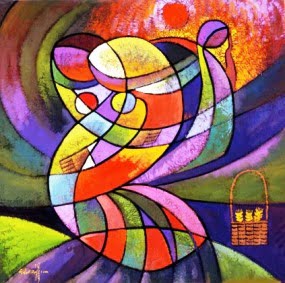 Then after they’d been in Moab for 10 years, the scripture tells us that Mahlon died. Then, Chilion passed too.
Then after they’d been in Moab for 10 years, the scripture tells us that Mahlon died. Then, Chilion passed too.
Three deaths one after another after another. Sit with this a moment. How in the world did poor Naomi get out of bed in the morning? Her husband, her first son and then her second. I believe not only was this loss seemingly emotionally insurmountable but culturally impossible to navigate as well.
Because this was the context: the laws of the day stated that a woman without nearby male relatives or offspring was completely on her own. No way to work. No way to own property. No way to re-marry without a dowry from a male relative to help her. How would Naomi and her daughter-in-law not starve?
So given all of this, persistent Naomi comes up with a plan, the best plan she can muster. She’s heard that there’s food again in Judah. Though Moab has grown to be her home and the last place she has memories with her beloved, she sees light at the end of the tunnel. And this light looks like being a beggar back in her hometown. She believes she must go back. She’ll find food there.
So, quickly Naomi’s mind is made up. She’ll travel, solo though.
In preparation for the journey, Naomi takes her two daughters-in-law aside, to have that woman-to-woman talk, to set things straight, and to pour out her sorrow. “I’ve gotta go” Naomi says but “You’ve got to stay. I can offer you nothing more.”
Can you imagine both the overwhelming grief and courage it took for Naomi to say these words?
Because grief does what it does--- often pushes people away, says let me be alone, let me deal with this and get through this so that my pain doesn’t bring pain to you too.
But isn’t it true, even in grief, we sometimes have the capacity to think of the other? Naomi felt concern for her daughters-in-law. Naomi knows that Orpah and Ruth could start over. They could find other husbands. They could have children with them. They could move on with their lives and forget hopefully one day that this painful chapter ever existed. So she urges them to stay. Stay in Moab.
Bottom line: Naomi asks her daughters-in-law to choose security, a norm, what society would call the “best case scenario” given the less than desirable circumstances for them.
Orpah and Naomi cry and cry and object to this parting.
Yet, Naomi clearly speaks her mind in verse 11, “Turn back my daughters, why will you go with me?’
Orpah eventually agrees and set back toward her home place.
But Ruth is different. She refuses to believe that family is defined by the cultural and economic system. She refuses to accept that this very hard patch is the end of the story or all of the story. She refuses to let Naomi’s pain be the determinate of their future.
So in verse 14, we read that Ruth “clings to” Naomi.
I think it’s interesting that Ruth chooses the Hebrew word for cling which is the same verb used in Genesis chapter 2 when after the creation of the first man and first woman the instructions are, “a man must leave his father and mother and cling to his wife.”
Ruth is not going to leave Naomi! She says with her body language, “I love you and I won’t let you go.” Powerful.
And Ruth’s speech to Naomi that follows is one that you might very familiar with. You might have heard it read at weddings (or even your own like it was at mine!). But if I was going to give a theology lesson here I don’t believe her speech is a text about marriage but rather a powerful word about how it is that God creates families.
These are more than beauty words. They are words full of devotion!
Commentator John Holbert advises us: “We must remember the exact context of this speech if we are to recover its wonder. Ruth has been dismissed by Naomi; she plainly is not in any of Naomi’s future plans but she still says: Do not force me to abandon you, or to turn away from following you.”
Most of all, Ruth will not take no for an answer! And she models this:
 Of course, the journey to Judah and the early days there would not be an easy road for Ruth. Redemption stories never are.
Of course, the journey to Judah and the early days there would not be an easy road for Ruth. Redemption stories never are.Listen to the cost. For Ruth to follow God’s path for family, she’d give up her homeland, her Moabite passport and all things familiar. She too would become a refugee in a foreign place. She’d face a vulnerable journey ahead where nothing would be certain. What would life be like in Judah? No one really knew.
But, she’d be with Naomi. She’d be claimed in a new family. She’d be in exactly the place in life she needed to be--- though not perfect or ideal, she found her place to belong even still.
I love how this text ends in verse 18. “When Naomi saw that [Ruth] was determined to go with her, she said no more.”
I.e. Chatty Naomi with her plan for everything, with her pain and her future all nicely worked out in a package with a bow on top gets rendered speechless.
This kind of family “I chose you” devotion is something she did not expect.
But who really does?
When the Spirit begins to move, when life’s most powerful redemption stories find us, when someone not obligated to love us does, we’re speechless too.
The way God creates families might make us speechless too.
And this my friends is the good news I have to offer you today on a day of so much family expectation and potential disappointment:
Don’t hear me wrong. Biology is great. Or can be great. The mothers and fathers and sisters and brothers that we are born alongside and grow up with can be some of God’s greatest gifts to our days.
But, if there is anything that the story of Ruth and Naomi teach us that we need not idolize our blood line. Our God is about connecting us to one another so many deeper ways. Our God is in the business of creating Spirit families. And Jesus had a lot to say about it too:
Not only did Jesus tell his disciples: “Who are my mothers and brothers and sisters? Those who do my will.”
And connect his own mother to a new son (to John) upon his death—with no biological ties I might add.
But Jesus gave us the Holy Spirit and the Holy Spirit birthed the church—a place where we are all welcomed and joined together as one.
And so if this is true: may we act like it. May we love one other. Abide with one another. Bear with one other.
And say to one another when hard times come, just as Ruth said to Naomi that day: “Do not press me to leave you or to turn back from following you! Where you go, I will go; where you lodge, I will lodge; your people shall be my people, and your God my God. Where you die, I will die—there I will be buried.”
God’s family is deeper and longer and higher and wider than any one home, than any one mother or father or sister or brother. We belong to something great-- the family of God.
AMEN
A couple weeks ago with Kevin out of the country for work and no particular geographic place I needed to be I packed up from DC and headed south toward North Carolina.
While I was in seminary I worked to keep my student debt at $0 as a student associate pastor at a rural United Methodist Church.
For two academic years, New Sharon United Methodist Church was my home.
It was a win-win for both the church and me, I believe. They got extra pastoral help. I got valuable experience as a pastor in an affirming environment. I taught them that all folks with Baptist roots aren't crazy. They taught me the joys of entering deeply into their lives. We loved each other. And I made some life-long friends as a result of being a part of this community.
So, it feel natural to call some New Sharon church members who have abided in my life since then-- and ask them if I could stay with them when I came to town. Tim and Debbie Smith were great to say "Yes!"
In being in North Carolina, the land of many trees, I remembered who I was. And I got a lot of writing done surrounded by good company and food.
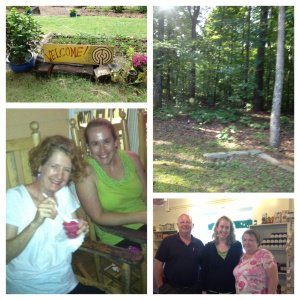
Not only through the gracious hospitality of my hosts, but through numerous lunch and dinner conversations and even a visit back to choir practice at my old church.
I heard things like, "We still think of you all the time . . . We are so glad our paths crossed when they did. . . . I wish you lived closer."
I even got to reconnect with an older church member, Bobbie Hunt who told me that she has a bookmark I gave her after my visit to Africa in 2005-- and that she prays for me daily. Every time she sees the bookmark, she said that she prays for me! I was amazed and tears came to my eyes as I heard this. Not only did I have no idea I'd made any impression on her life, but to know of her daily prayers for me was amazing (especially considering so much of Kevin's work with FTC is now in Africa!).
North Carolina was good for my soul.
I remembered I came from somewhere-- including there.
I remembered that I have more people who love me than I realize from my current experience in a new place.
I remembered the joy that comes from the calling of being a particular group of people's pastor.
I remembered that I have a home to go back to anytime I forget.
Durham, Hillsborough and New Sharon United Methodist friends, I love you. Thanks for reminding me again how much you love me too.
At its core, I believe that Christianity is a communal faith.
It's a committment to a lifestyle that none of us can choose to live alone.
We need exhortation, correction and support from one another not only to know God more fully, but to stay on the often difficult path we call discipleship.
We gather together each week for worship because believe that somehow together we are much better off than alone.
We share meals together in social halls because we believe there is something about shared fellowship that makes us stronger.
We study scripture together because we trust that in reading holy texts with other ears around the table we see God more clearly.
But, I'm always interested in how faith communities are formed outside the walls of organized religion.
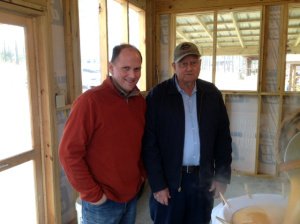 At Christmas time, Kevin and I have spent the past week with family in South Georgia-- in a small town of all things Hagan.
At Christmas time, Kevin and I have spent the past week with family in South Georgia-- in a small town of all things Hagan.
It's a locale where my husband's family have lived for generations and everyone in his immediate family lives except us.
When first introduced to my future father-in-law when Kevin and I were dating I asked: "What are your hobbies?" It was a causal question meant to make conversation but his answer told me so much about what I would later come to love about him. "Well," he said, "I don't really have any hobbies other than the fact that I build things."
Though I know my mother-in-law wonders when it will all stop...
In the past several years, he's helped his grandson build a house, added a dock and gazebos to the pond outside his home (where our wedding was held by the way), added an outdoor kitchen to the pool, built a cabin affectionately known as "the pond house" as gathering space for groups and his latest project a shed for syrup making (see pictures below).
He does so for one reason: to bring people together.
Though he'd never say it in that way. It is just what he does.
He wants to make his homeplace a place for others to find joy.
And not just for his immediate family (though these people are important to him) but anyone you needs a place to be.
Community building, for him is not a one time thing but a lifestyle I've observed over these 7 years I've been associated with this family.
For example, this week a group of men from town gathered in the syrup making shed for the 4 hour process of making gallons and gallons of syrup (to be distributed and given to others in the area).
As we all stood around the big pot, I couldn't help but take a step back and soak in the wisdom of my teacher of a father-in-law.
There is nothing that brings him more joy than building things and seeing people enjoying what he has created.
God calls us into community.
Some of us cook meals.
Others of us write blogs or author books.
Some of us coach sports teams.
And some of us even construct shelters.
And in all of these contributions, community is built.
And I have to think God looks on and says "it is very good." I am glad to have such good teachers as I keep learning.
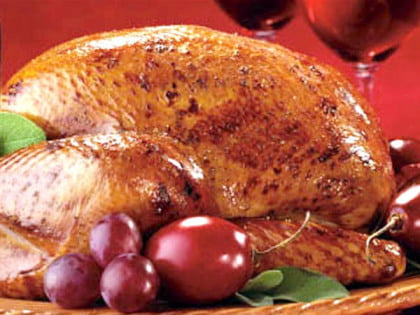 The countdown is on . . . I have to say that thanksgiving is my FAVORITE holiday of them all. Some of my most favorite childhood memories were made during thanksgiving extravaganzas planned with my cousin, Ellis, four years my elder (which of course made him extra cool). Those of you who've spent Thanksgiving with me know that I'm serious about my traditions. Even the year that my friend, Kristina and I spent the day in Italy and even the year that Kevin and I went to Argentina for a wedding, we still did (or tried to do) these things.
The countdown is on . . . I have to say that thanksgiving is my FAVORITE holiday of them all. Some of my most favorite childhood memories were made during thanksgiving extravaganzas planned with my cousin, Ellis, four years my elder (which of course made him extra cool). Those of you who've spent Thanksgiving with me know that I'm serious about my traditions. Even the year that my friend, Kristina and I spent the day in Italy and even the year that Kevin and I went to Argentina for a wedding, we still did (or tried to do) these things.
In our house, nonnegotiable for the holiday include:
1. Singing "We Eat Turkey" (a song I learned in 2nd grade music class). "We eat turkey. We eat turkey. Oh, so good. Oh, so good. Only on Thanksgiving. Only on Thanksgiving. Yum. Yum. Yum." Repeat- and add in your favorite food. (to the tune of Frere Jacques). It can go on forever which is one of my favorite parts of it.
2. Saying around the thanksgiving table what you are thankful for-- more than just "friends or family" I love when people really say what they feel gratitude about. Has life blessed you with something you didn't expect? Has an unexpected relationship surprised you? Where have you found joy?
3. Reading the "Dear Abby" prayer before dinner.
4. Going to a movie on Thanksgiving eve-- just completely chilling out.
5. Thinking about the memories of thanksgiving past-- the times when Ellis and I organized charity basketball games, made up our own fantasy football league, took and gave others Pilgrim tests, organized a family church service and of course choreographed dance videos.
Also, some of my favorite sermons preached have been on the topic of thanksgiving. Such as this one I preached last year called "The One Who Said Thank You." It has always been fun to integrate one of my favorite holidays into my work life, encouraging others that it is good to stop and thank the Lord for all our blessings.
It is the most wonderful time of the year! Happy thanksgiving to you and yours.
Our last in the series of "Sermons by Request" continued this morning. Finding out that this was the passage chosen made my head spin a little... I didn't know what I'd make of such. But in the e d thankful for this week's theological wrestlings.
Romans 1:18-25
One of the most important questions of faith that we all must answer, no matter where we are on our spiritual journey is, "What is my relationship to God? And God's to me?"
As we begin to answer this question, it is important to start in the beginning.
It has been said in countless formal and informal studies of the spiritual beliefs and attitudes about God of adults has much to do with the relationship he or she had with their parents. After all, our parents and our immediate family members are our first introduction to navigating the world of human relationships. From our connection with our parents, we gather a lot of inferences about the evil or the good in the world, whom we are to fear, who we are to trust, what it means to love and what punishment feels like.
But even more so than this, this association is important to pay attention to because of how we talk about God in our faith communities. After all, how we speak about God in church each Sunday usually includes a lot of parental language. We say, "Our father who art in heaven" as we begin the Lord's prayer together. We pray spontaneous prayers to our "heavenly father" or "father God" and sometimes even to "Mother and Father God." We baptize in the name of the "Father, Son and Holy Spirit." And, I know if you've been listening closely to my sermons, you've heard me say once or twice something about God as our heavenly Parent.
Blogger Lisa Beklin, recently said in a New York Times post, "Motherlode" the following about the relationship between earthly parents and attitudes about God:
When parents are more supportive of a child’s autonomy – giving her a sense that she is control of her own life – a child is more likely to see God as a more forgiving God. God is an authority figure to be respected, but he is less fearsome.
On the other hand, if parents are extremely strict and punishing – dictating every moment of a child’s life – their children are more likely to believe that God is punishing, angry, and powerful. Girls are more affected by this dynamic than boys, and the way Mom disciplines has more of an effect in this direction than the way Dad does.
And for children who have extremely strained relationships with parents – or when a parent is absent from their lives – scholars have found that children in those relationships increasingly think of God as a surrogate parent. God as the ultimate father figure. They endow God with the traits of an idealized version of the missing parent – someone who is caring, attentive, and highly involved in their day-to-day lives. He’s an understanding, patient confidant, always there to offer encouragement and support.
I don't know what gifts or challenges your parents gave you which have required potential reframing or growing from in the spiritual life of your adulthood, but I do know this, there isn't a person in this congregation this morning who didn't get at least some of your ideas about God from your family situation.
And so when we arrive at our epistle lesson from this morning-- one of your favorite texts (and in this case of how hard I found myself working to make something of this passage, I really want to know who you are)-- it might be very easy for us to read into this text what we think we know about God from our own earthly parental experiences, especially if the parents we had related to us like "the great judge" or "the angry one" or "we could never do anything right" type.
For upon first reading of this text, when it begins with the words, "for the wrath of God" our minds easily can go toward emotions of God as an overbearing, chastising, hateful parent. For the word "wrath" associated with any person's name, doesn't paint pictures of someone we really want to spent much time with. In fact, we want to spent as least amount of time with them as possible!
But, is this who God is? What does it mean for us to claim God as our parent?
The book of Romans-- a letter to the church at Rome, that we know was written by the apostle Paul, is one of the richest books of theology in the entire New Testament. It's a book that seeks to help the earliest converts to Christianity understand this Jesus whom they had put their faith in. It's a book that seeks to lay out the relationship between Judaism and the new movement called Christianity. It's a book that provides the growing communities of followers of Jesus the opportunity to think in detail about who it is that they are worshipping. And from best that we know, Paul wrote Romans to a community of both Jews and Gentiles alike-- who were living in a secular culture of worship of many gods, so they could also say as he did in verse 16 of chapter 1, that "they were not ashamed of the gospel of Jesus Christ."
Upon first reading of Romans 1:18-25, it seems clear to me that Paul is telling us that God has standards. And these standards of relationship begin in righteousness.
We read, "For the wrath of God is revealed from heaven against all ungodliness and wickedness of those who by their wickedness suppress the truth."
Or, in other words, God's original intention for humanity seems that we were created, Genesis 1 tells us as "very good" but we made choices early on to begin to live as people outside of the bounds of how we were created to live, in complete goodness of our good God.
Ultimately there is a way that God wants to live-- in a world of all love, of all peace and all joy of the best things, but we've made choices throughout the generations and even within our own life that have robbed us of this best living.
And, in God's emphasis on righteousness, we, who as a people have fallen short of God's best for us, are loved with boundaries. We are loved-- not in a "we get everything we want" kind of way, but loved within the parameters that model for us what is better choices kind of living.
Again, here we might want to turn our noses up at God and say, "You are still talking about sin again, and am not sure I can believe a God who uses words like that."
But consider this, when is the last time you were around a family with children or a group of children that you knew didn't have parents that focused much of their time (or focused too much of their time) on their children?
Think toddler throwing food across the floor hitting other nearby customers at the restaurant with noodles or remains of chicken fingers after they've repeatively been asked nicely not to . . .
Consider early grade school child stopping crowds around them with their screams in the middle of the mall or in the parking lot of a grocery store when their mom told them they could not buy something . . .
Think smart mouth of young teen child talking back and then storming off from an adult conversation and slamming the door behind them . . .
Not that this is an occasion to single out children who like us adults, are just having a bad day and may be without the words yet to express their pain (you know, sometimes we all just need to have a good cry, even in public) but the larger point being: that without constantly reinforced consequences of poor choices-- boundaries directed toward appropriate behavior, we are not going to find our way to a better, more healthy path.
And the same is true of God, I believe, as Romans 1 lays it out for us. God loves us enough to not always say "YES" to us. Just as author Anne Lamott once wrote, "No is a complete sentence," so too God also tells us no sometimes. Saying no to us is just what God does from time to time. Look with me at verse 24, "Therefore God gave them up in the lusts of their own hearts." Or in other words, God allows us to reap what we sow: not to be mean, but to love!
But this does not mean that we are eternally screwed-- left out in the cold on our own, with grave consequences of our shortcomings forever damming us to a place of unpleasantness. Not, God is faithful. We are allowed to taste the bitterness of our own poor choices so that we can learn and come into deeper relationship with the Divine.
If you hear nothing else today, here this and bind these words of hope in your heart: God is a relentless pursuer of relationship with us. It doesn't matter who we are. It doesn't matter what we've done. It doesn't matter how alone we feel. God will make a way for us to be in relationship.
God is like the parent who sends their child to time out for a while to think about the consequences and then later when time is up, crawls on the floor to sit beside them to talk through things. Holding them, hugging them close, then suggesting and going with the child to an activity or way of being in the world that is more appropriate for them. Loving through presence.
Ultimately, it is that God shows us through Jesus how much we are loved. Just as we talked about last week-- through the incarnation of the holy in Jesus Christ, we are given opportunity to know and experience God as one of us. God became our Parent in Jesus Christ who came close.
Fredrick Buchner in his book, The Magnificent Defeat this about our relationship of children of Parent God:“We are children, perhaps, at the very moment when we know that it is as children that God loves us - not because we have deserved his love and not in spite of our undeserving; not because we try and not because we recognize the futility of our trying; but simply because he has chosen to love us. We are children because he is our father [and I'd add mother]; and all of our efforts, fruitful and fruitless, to do good, to speak truth, to understand, are the efforts of children who, for all their precocity, are children still in that before we loved him, he loved us, as children, through Jesus Christ our Lord.”
Jesus shows us the way of the love of the Father. Jesus shows us what God as Parent looks like.
But what about those, we might wander who have not heard of Jesus? What about those who have not been given exposure to the glorious grace of faith, as we have, all sitting in this room this morning? What about them?
Well, to this Paul, tells us something else about the relationship between our Parent God and all of us as God's children. We, who are made in God's image have all been given a seed of longing within us for what is greater than ourselves, for what is whole, for what, I dare say is even righteouss. In particular, our text for this morning, tells us about creation-- about the splendor of the colors, of the textures, of the peaks and valleys, of the breeze, of the sounds, and of the night lights all around us. Creation is just one example, Paul writes of how we have been given post-it notes all around our lives. We've been given post-it notes all around the house call this world in which we all reside that lead our longing back toward what can ultimately fulfill it.
Didn't the great hymn writer once say, " O Lord my God, when I in awesome wonder, consider all the worlds Thy Hands have made; I see the stars, I hear the rolling thunder, thy power throughout the universe displayed. Then sings my soul, My Savior God, to Thee, How great Thou art, How great Thou art?"
And, if not creation, something else. Unexpected relationships that just show up and redirect our paths to what is holy. Intersections with communities of faith seekers, like those found within a congregation like this one. Groups of people who are doing works of charity, not just for the sake of feeling good about themselves, but in the name of our Lord. And in all this things we are pointed on our way to God.
Bottom line-- the longing for God is something that is in all of us. If we pay attention to its tugs, it's going to put us on a search to find our truest home with God, our Parent.
Therefore, to claim God this day as our Parent, is not about what was or wasn't done to us as a child. It's not about the big man up on the throne looking down on us shaking his iron fist at us. It's not even about our shortcomings dangled in front of our face as a way of the Divine saying to us, "You are awful. I hate you."
No, rather, in spite of our sin-- our missing the mark of God's best for us, God is a loving parent who helps to draw us back to center, back to wholeness, back to healing, and back to peace through whatever means necessary. God shows us more of Jesus.
I don't know about you, but I need a parent like this. A parent who lovingly pursues relationship with me. A parent who tells me the truth. A parent who teaches me how to grow more comfortable in my own skin each day. A parent who says no. A parent who teaches me how to love others in the same way too.
Let us give thanks this day to the Father and Mother of us all- our God who has called us God's own.
AMEN
How hard it is for us strong, "can do anything types" to not be afraid of love! Love given and acknowledged always holds a level of vulnerability that sometimes we simply aren't willing to show. But, that our souls truly need.
This week has been a happy one around our house in particular. In October, there is the week of Kevin as less than a week separates Kevin's birthday from our dating and wedding anniversary. And in February, we celebrate the week of Elizabeth as a week separates Valentine's Day and my birthday. These celebration weeks became an intentional decision between the two of us when we planned our wedding date (and also the farmer's almanac said it wasn't going to rain the town of our outdoor wedding, so we went with a October date-- important too ) . In these two special weeks, we've thought of ways to remember and enjoy life together such as mornings of breakfast in bed or dinners cooked at home (all you city busy folks know what I mean when I add this on the list of a special treat) or sometimes a overnight get-a-way.
In this being "my week" including a special trip together last week (a writing retreat for me), dinner out last night and my super surprise gift this morning: an IPad this morning, I've felt the love. And, I'm grateful. How did I find myself with so many amazing people in my life?
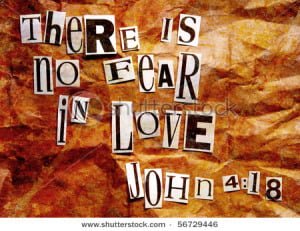 Sometimes, though, we want tangible expressions of love, but we also don't know what to do with them when they arrive. I remember a fabulous birthday several years ago when I was literally on cloud 9 from all the gestures of support around me and felt paralyzed all at the same time. I think if I got one more birthday card, that year, I would have exploded. And, I know I am not the only one who has been in this place of bewilderment.
Sometimes, though, we want tangible expressions of love, but we also don't know what to do with them when they arrive. I remember a fabulous birthday several years ago when I was literally on cloud 9 from all the gestures of support around me and felt paralyzed all at the same time. I think if I got one more birthday card, that year, I would have exploded. And, I know I am not the only one who has been in this place of bewilderment.
When lovely people do lovely things, it is easy to be stopped in our tracks and just not know how to respond. Sometimes we shut down, in the pain of the joy. For, we don't have the room in our hearts to take it in. The act of stretching our hearts to open to others can feel as painful as a long work out at the gym. When our souls have never felt loved in our deepest caves, sometimes love's arrival can actually sting a little. In fact, being loved, just as we are, by others can often be one of the scariest emotions in life.
While watching an Oscar special this week featuring the wonderful actress, Viola Davis, it struck me how authentically she described her own struggles with receiving love. Watch a portion of this interview here. Saying, how much of a radical transformation love became in her as she began to trust the man for the first time who would become her husband. Something as simple as allowing him to drive her somewhere became a symbol of abiding love-- love that was without fear.
I John 4 talks about love's relationship with fear in this way:
16 So we have known and believe the love that God has for us. God is love, and those who abide in love abide in God, and God abides in them. . . . 18 There is no fear in love, but perfect love casts out fear; for fear has to do with punishment, and whoever fears has not reached perfection in love
This is what I am learning about love-- there is no fear in love when it begins to truly seep into our hearts. But, such a fearless stance requires practice and people who are willing to stay in your life long enough that you actually believe them when they say to you, "I love you."
I'm just so amazed that I get this week every year to practice feeling loved and wish the same kind of experience for others too. Everybody has somebody who loves them. Everybody has somebody that they need to tell that they love them. The question on our shoulders, then is: will we love? Or will we be afraid? I want to love.